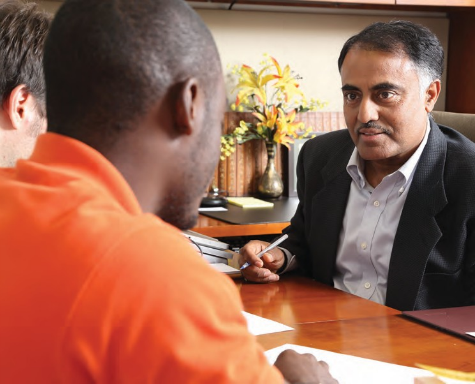As we make our way through the tumultuous second decade of 21st century, a new vision is emerging to effectively address inequality, protect the planet and ensure well-being for all as part of our shared destiny. Achieving these ends will require the concerted efforts of the business sector, governments, informed citizens, society at large, and, of course, educational institutions.
Working collaboratively through the MBA program as a vehicle, academia and the business sector can do their part by elevating sustainability as a pedagogical imperative. The curriculum must say: “We only have one planet on which to live. Let’s cultivate it together.” This is mindful business, business with a conscience, business with an ethical core. The shorthand? “Sustainability matters.”
At Woodbury University, our belief is that a focus on sustainability within an MBA framework can help harness what is good for students, good for society and good for the planet. That’s why this mindset should rightfully transcend any specific campus or institution. The mission for business schools might well be something along the lines of “Cultivating Transformational Leaders for Sustainable Business.” Taking sustainability seriously means not tracking just the carbon footprint of business, but its total footprint. It means viewing business holistically through a triple lens: economy, equality and ecology.
It is incumbent on tomorrow’s business leaders to examine these macro issues objectively and to seek out diverse perspectives for reflection. This new credo for business education asks for an additional commitment: examine existing belief systems in light of the evidence presented, rather than scrutinizing the evidence based on pre-existing notions. This expectation is at the heart of every scientific endeavor; students must be mindful of confirmation bias and premature cognitive commitment. It’s a sure way to discover the difference between being on the side of the evidence and insisting that the evidence be on your side. That realization, indeed, is a precursor to shaking up the status quo in schools of business…and well beyond.
Working collaboratively through the MBA program as a vehicle, academia and the business sector can do their part by elevating sustainability as a pedagogical imperative.
Aristotle is reported to have said the following of his teacher, Plato: “Plato is dear; still dearer is the truth.” This is the most important key to understanding all profound questions of life and leadership. And the spirit of that ancient edict informs Woodbury’s notion of the Sustainable MBA.
Satinder Dhiman, Ph.D., EdD., serves as a Professor of Management and as the Associate Dean, Chair, and Director of the MBA Program at Woodbury University’s School of Business in Burbank.
Learn more about Woodbury University’s MBA Experience event on March 10. Visit www.woodbury.edu/MBAExperience for more information.

